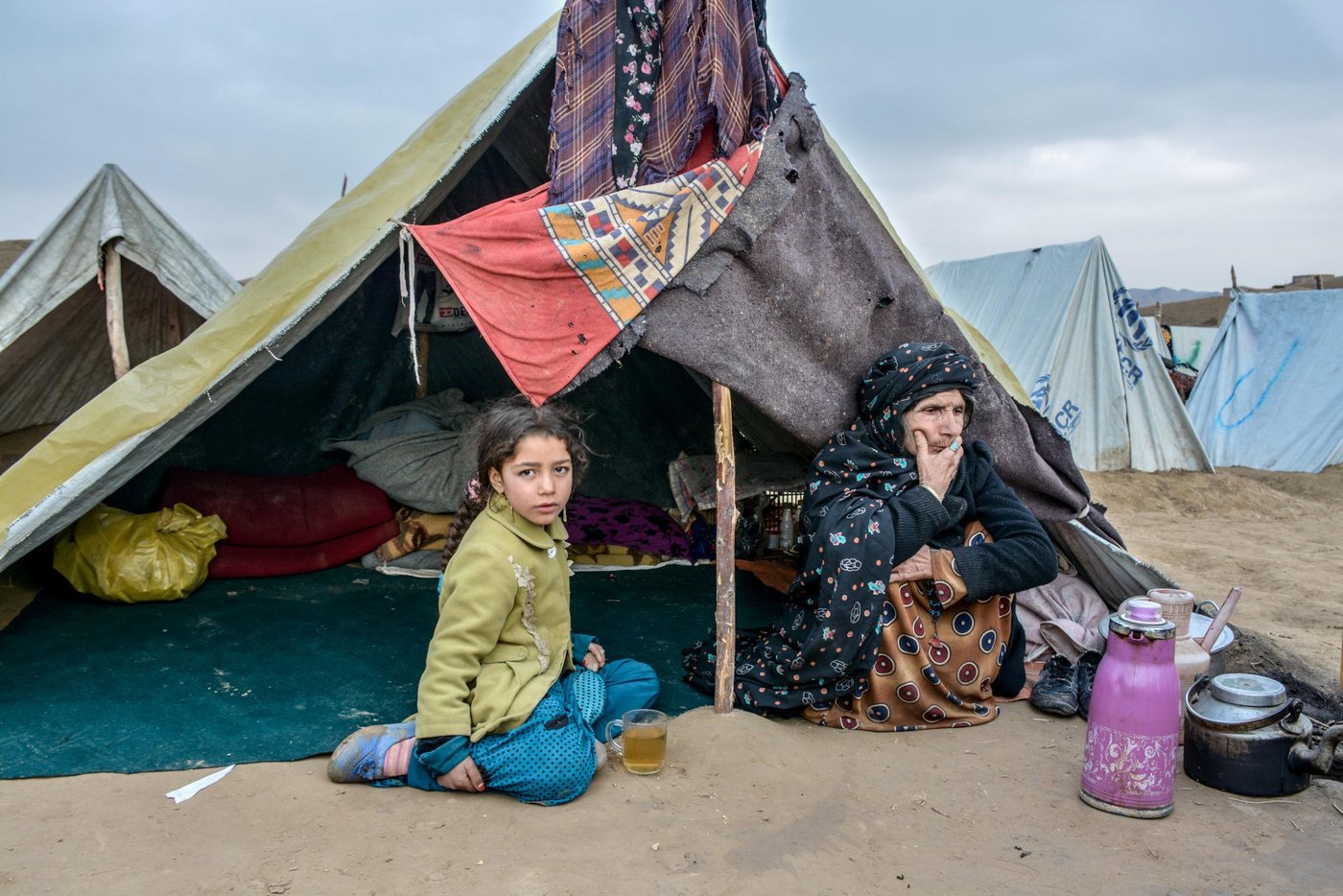The Ghotay family was one of thousands of families who left their homes in northern and western Afghanistan in 2018 because of ongoing conflict and drought. As harvests failed and livestock died, many rural families saw their livelihoods destroyed. They were forced to move towards the larger cities, often selling everything they owned in order to survive.
In circumstances like these, civilians have little choice but to flee. Sites such as Feristan are thus a vital resource for displaced people, providing a structured environment where they can access emergency supplies and shelter quickly.
NRC helps to manage camps and settlements around the world – both formal and informal – to protect displaced people and provide life-saving assistance.
Five months under a plastic sheet
“I’ve lived here for five months now, with my son and two daughters. My husband died five years ago. My eldest son has his own family, and my second eldest is a drug addict. I haven’t talked with him for years,” Gul Ghotay tells us.
Gul’s story is a harrowing one, but not untypical. Life in this barren place is hard, and the people are desperate.
In response, NRC has distributed 2,500 high-quality insulated tents to families in Feristan. Each tent is 23 square metres in area and has enough space for a family of up to eight people. The tents are waterproof and insulated with double walls and quality flooring. They have a minimum life of one year.
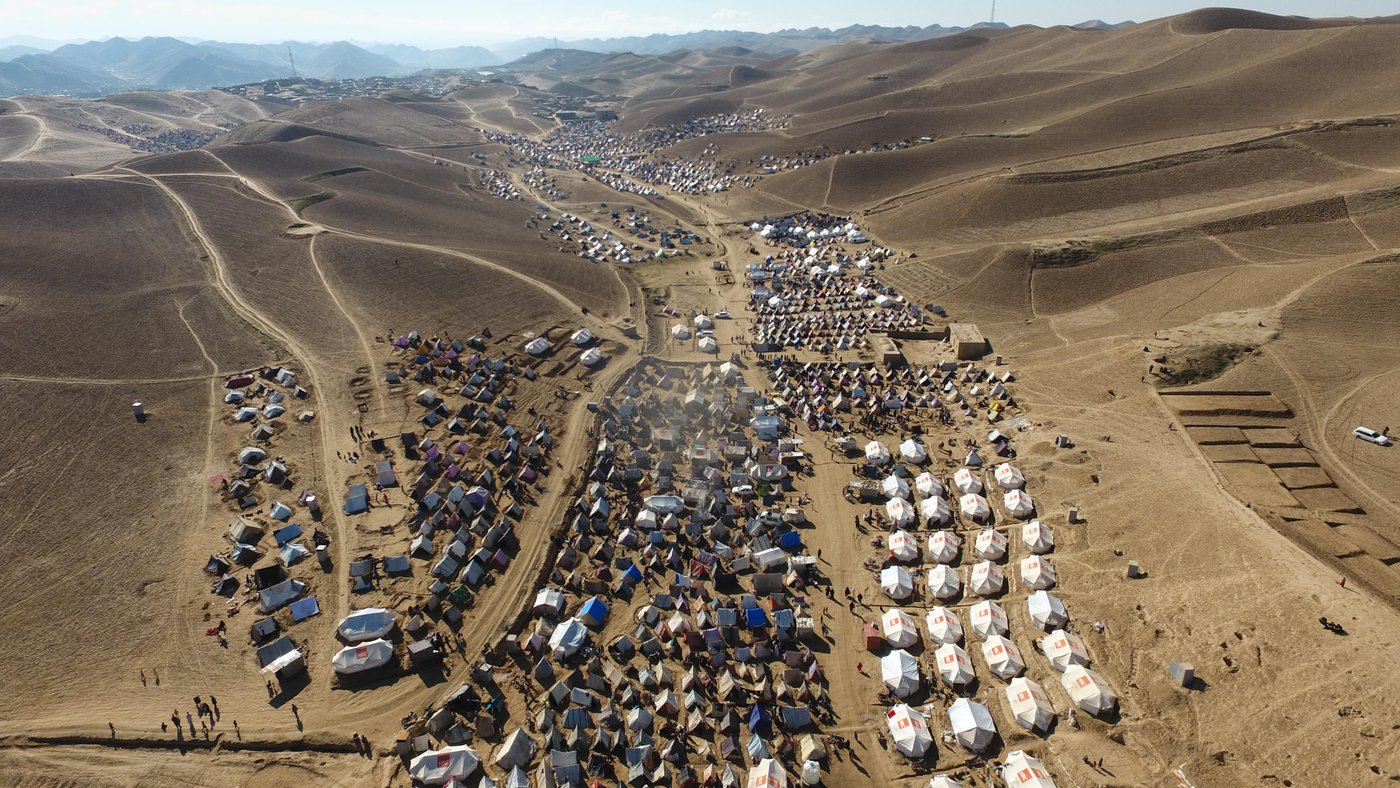
NRC’s shelter adviser, Miriam Lopez-Villegas, explains the process: “Our team mark the ground to make sure there’s enough room between the tents to provide a minimum of privacy, mitigate the risk of fire and help create a sense of community where each family has the same space.”
Helping families prepare for winter
Previously, the site was located further down the valley, near a dry riverbed. In cooperation with local authorities, we moved all the families further up the valley, so they wouldn’t risk being flooded when water levels rose throughout the autumn and winter.
In addition to tent distribution, we have also helped thousands of families with blankets, warm winter clothes, shoes, kitchen kits and hygiene equipment.
How we make a difference
Almost 400,000 people around the world benefited from our camp management programmes in 2018. Here are three of the ways we make a difference.
1. Managing formal camps
When displaced people are gathered in formal camps, they need an infrastructure to support them. Shelters must be built and maintained, clean water and food must be provided, and the residents must be given protection and assistance. In these situations, NRC can assume the role of camp manager if requested by the authorities.
In the first four months of 2018, nearly 80,000 refugees from the Democratic Republic of the Congo came over the border into Uganda. Many were fleeing deadly ethnic violence in their home country. The refugee camps in western Uganda struggled to cope with the influx, and a cholera outbreak in the districts of Hoima and Kyengewa threatened thousands of lives.
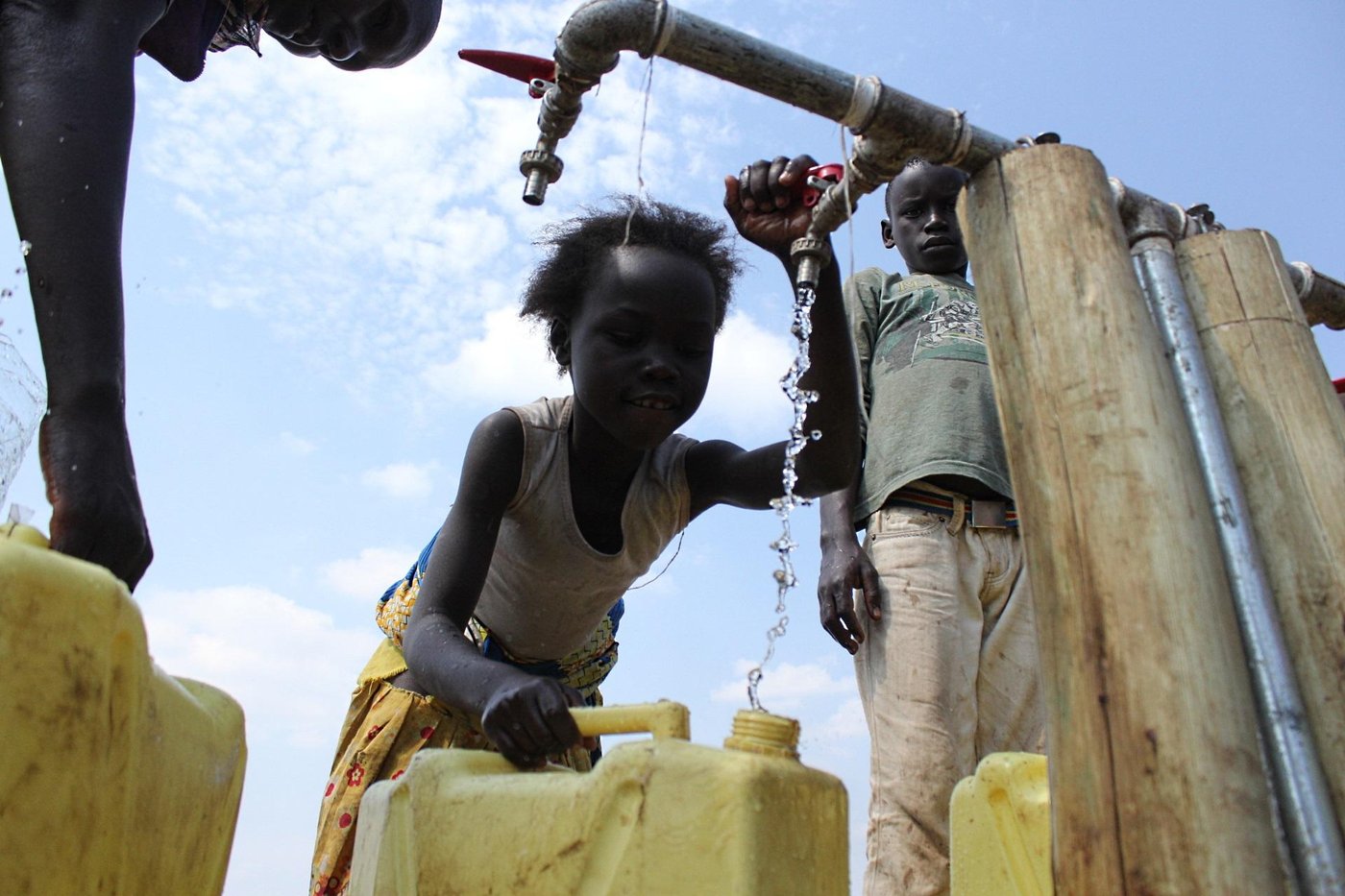
NRC was one of 28 aid agencies that worked together to respond to the crisis. At Kyangwali refugee settlement, we constructed 200 communal latrines and 200 bathing shelters, and installed two clean water tanks. We trained hygiene promoters, set up a process for monitoring water quality, and helped refugees to disinfect their drinking water and minimise the risks of cholera. We also constructed temporary shelters for people with specific needs.
“We are in the middle of the crisis and we are doing our best to save lives and protect the most vulnerable. Each day brings new challenges,” explained Dominika Arseniuk, NRC’s head of programme in Uganda at the time.
Read how we helped manage camps in western Uganda
2. Supporting informal settlements
Sometimes, displaced people gather together themselves in small, dispersed settlements. These have some of the characteristics of formal camps but are often not recognised by the local authorities. In these situations, NRC uses mobile teams to offer the same kind of support and assistance that might be found in a more structured camp.
For many Syrian refugees in Lebanon back in 2017, a tented settlement on the outskirts of the northern city of Tripoli had been their only home for years. There were few indications that they could return to Syria any time soon. We worked in these informal settlements, helping the refugees to identify and resolve issues alongside the Lebanese communities living nearby.
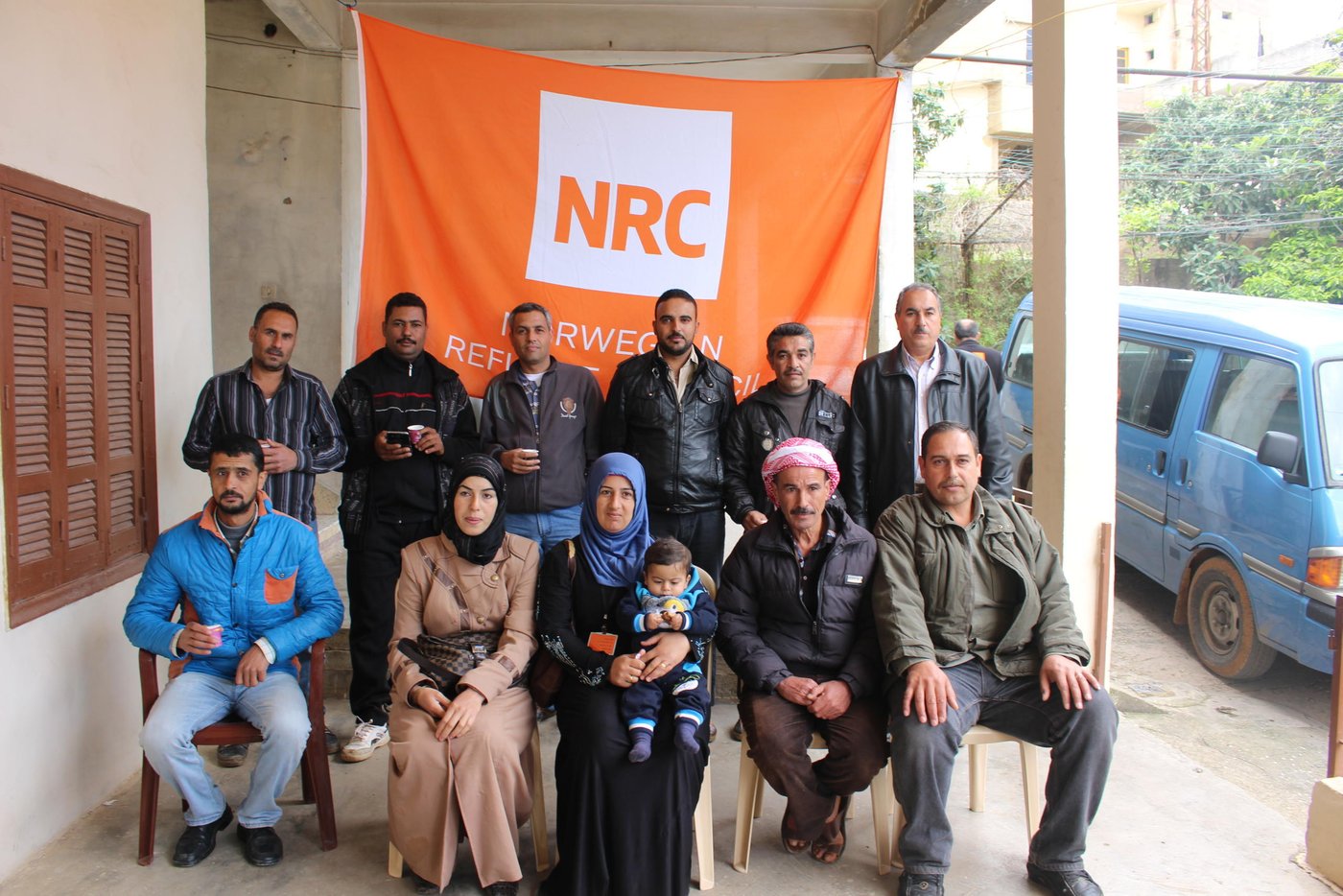
Waste disposal and pollution of the local river was a particular problem, and we helped the refugee community to set up a committee to deal with the issue. Community representative Omar met with local residents, both Lebanese and Syrian, and together they reached a solution.
Omar went from tent to tent, collecting money from each family, and asked for volunteers to clean the riverbed. The volunteers were then paid with the collected money.
“It was a simple solution with amazing results,” he explains. “Together, we reduced the tensions with our neighbours and addressed a potential health hazard. The community united to address a shared problem.”
3. Helping displaced people living with host communities
Not all displaced people live in camps – whether official or unofficial. In urban areas especially, they often live alongside host communities. This relatively unstructured environment brings particular challenges when it comes to providing support.
Safaa, 45, a mother of seven children, fled with her family from Syria to South Lebanon, but they were never able to settle in one place. “We have moved to more than 30 houses in eight years because we cannot afford the rental costs,” she explained.
Then, earlier this year, the family was evicted from a shelter where they were living rent-free. They were forced to pack their belongings and look for another place.
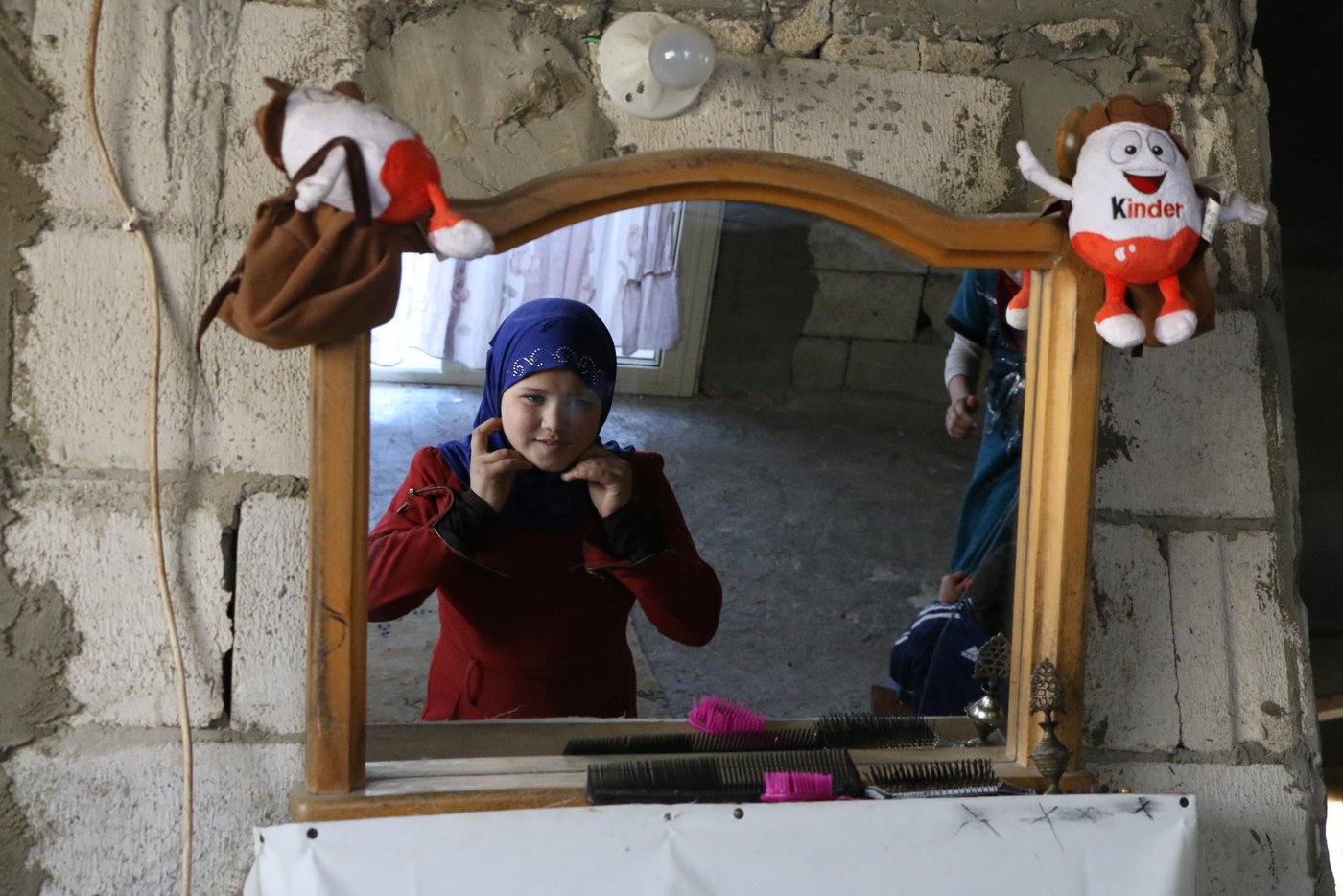
Safaa’s family spent a month living in a tent before getting in touch with the Norwegian Refugee Council (NRC). “I called the organisation and explained our difficult living conditions,” Safaa recalls. “Their staff visited us the next day and immediately provided us with life-saving shelter support.”
They were able to move in to a flat belonging to a Lebanese property owner, as part of a scheme whereby NRC renovates the apartment and the landlord hosts the family without them paying rent. Safaa signed a contract with the landlord for one year and two months.
“Today, we are living in a big three-room flat with a kitchen, bathroom and a lock,” says Safaa. “Here we feel safe and secure. I don’t have to worry about the rent or being suddenly evicted. We are safe.”
Facts and figures
In 2018 a total of 390,993 people benefited from our camp management work, spread across seven different countries.
Find out more about our camp management work
How you can make a difference
Join us in supporting the 70.8 million people displaced by war and persecution worldwide. You can contribute to our work in the following ways:
- Make a donation to NRC today – via our safe and easy online donation system.
- Start your own fundraising page – and invite friends and family to help you reach your target.
- Read about ten things YOU can do for the world’s refugees – and discover some creative ways that you can raise money and awareness.
For alternative ways to donate, or if you’re a US citizen looking to make a 100% tax-deductible donation, please see our Make a difference page.


